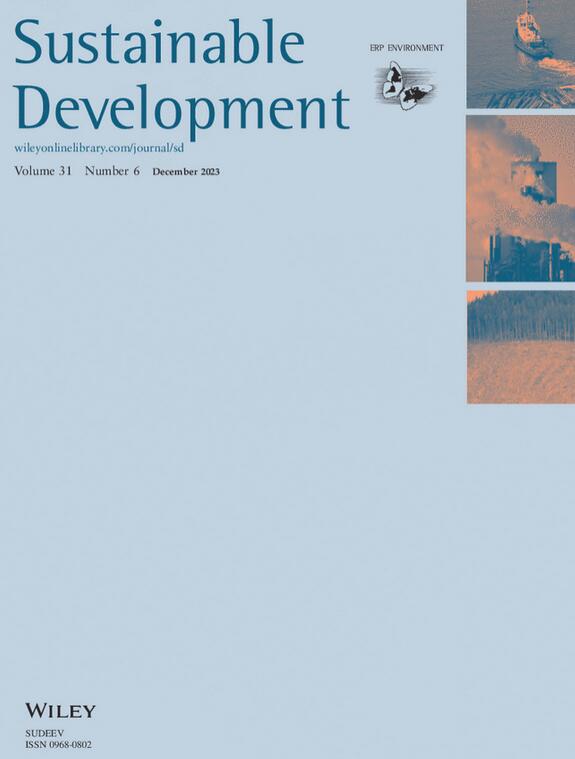环境目标约束与企业出口竞争力--中国对外贸易可持续发展探索
IF 8.2
1区 环境科学与生态学
Q1 DEVELOPMENT STUDIES
引用次数: 0
摘要
平衡出口增长与环境保护是促进中国长期可持续发展的关键。基于多维面板数据,我们利用 2004 年至 2014 年中国地级市和企业层面的数据进行了案例研究,考察了地方政府环境目标约束对企业出口竞争力的影响。结果表明,地方政府环境目标约束对企业出口竞争力有显著的负向影响,在经过一系列稳健性检验和克服内生性之后,这一结论仍然成立。机理检验表明,地方政府环境目标约束对企业出口竞争力的影响既存在 "传统学派 "的成本效应,也存在 "波特假说 "的创新补偿效应。子样本异质性回归发现,地方政府环境目标约束对污染型产业、加工贸易企业、劳动和资本密集型产业的负效应明显弱于对清洁型产业、一般贸易企业、技术密集型产业的负效应。该研究为政府制定环境政策以确保环境保护和出口增长的双赢局面提供了实证支持。本文章由计算机程序翻译,如有差异,请以英文原文为准。
Environmental target constraints and enterprise export competitiveness—Exploring the sustainable development of China's external trade
Balancing export growth and environmental protection is the key to promoting China's long‐term sustainable development. Based on the multi‐dimensional panel data, we conducted a case study using Chinese prefecture‐level city and firm‐level data from 2004 to 2014 to examine the impact of local government environmental target constraints on enterprises' export competitiveness. The results show that local government environmental target constraints have a significant negative effect on the export competitiveness of enterprises, and this finding still holds after a series of robustness tests and overcoming endogeneity. The mechanism test shows that there is both the cost effect of the “traditional school” and the innovation compensation effect of the “Porter hypothesis” in the effect of local government environmental target constraints on the export competitiveness of enterprises. The sub‐sample heterogeneity regressions found that the negative effects of local government environmental target constraints on polluting industries, processing trade enterprises, and labor and capital‐intensive industries are significantly weaker than those on clean industries, general trade enterprises, and technology‐ intensive industries. The research provides empirical support for the government to develop environmental policies to secure a win‐win situation of environmental protection and export growth.
求助全文
通过发布文献求助,成功后即可免费获取论文全文。
去求助
来源期刊

Sustainable Development
Multiple-
CiteScore
17.30
自引率
11.20%
发文量
168
期刊介绍:
Sustainable Development is a publication that takes an interdisciplinary approach to explore and propose strategies for achieving sustainable development. Our aim is to discuss and address the challenges associated with sustainable development and the Sustainable Development Goals. All submissions are subjected to a thorough review process to ensure that our readers receive valuable and original content of the highest caliber.
 求助内容:
求助内容: 应助结果提醒方式:
应助结果提醒方式:


